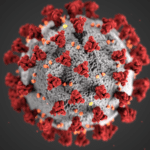In the relentless hustle of modern life, stress and anxiety have become pervasive challenges, exerting profound effects on our overall health. Among the range of consequences, a notable connection has emerged – the potential link between stress and gastritis. The landscape of health is evolving, and understanding the interplay between mental well-being and gastrointestinal health is key to promoting a comprehensive approach to wellness.
Can Stress and Anxiety Cause Gastritis?
Stress-induced gastritis is a specific type triggered by heightened stress levels. When the body experiences stress or anxiety, it can lead to various physiological changes, including an increase in stomach acid production. Over time, this excess acid can erode the protective lining of the stomach, resulting in inflammation and gastritis. Understanding these mechanisms sheds light on the intricate ways in which mental health intertwines with digestive well-being.
What is Stress-Induced Gastritis?
Stress-induced gastritis is a specific type of gastritis triggered by heightened stress levels. When the body experiences stress or anxiety, it can lead to various physiological changes, including an increase in stomach acid production. Over time, this excess acid can erode the protective lining of the stomach, resulting in inflammation and gastritis.
Most Common Stress-Induced Gastritis Symptoms
Identifying stress-induced gastritis is crucial for prompt intervention. The symptoms may vary from person to person, but some common indicators include:
- Abdominal Pain: Stress-induced gastritis often manifests as persistent abdominal pain, ranging from a dull ache to sharp, stabbing sensations.
- Nausea and Vomiting: Individuals experiencing stress-induced gastritis may also encounter bouts of nausea and, in severe cases, vomiting.
- Loss of Appetite: Stress can suppress appetite, and those with stress-induced gastritis may find it challenging to eat, leading to unintended weight loss.
- Burning Sensation: A burning sensation in the stomach, commonly referred to as heartburn, can be a sign of increased stomach acid levels.
- Digestive Discomfort: Stress-induced gastritis can disrupt normal digestive processes, causing discomfort, bloating, and a sense of fullness.
How To Get Diagnosed With Stress-Induced Gastritis
Getting diagnosed with stress-induced gastritis involves a combination of medical evaluation and collaboration with healthcare professionals. Here is a step-by-step guide on how to get diagnosed with stress-induced gastritis.
- Recognize Symptoms
Be aware of common symptoms associated with stress-induced gastritis, such as abdominal pain, nausea, vomiting, loss of appetite, burning sensation, and digestive discomfort.
- Consult a Healthcare Professional
If you suspect stress-induced gastritis based on your symptoms or if you have a history of chronic stress, schedule an appointment with a healthcare professional. This could be a primary care physician or a gastroenterologist.
- Medical History Discussion
During the appointment, provide a detailed medical history, including information about your stress levels, lifestyle, and any existing medical conditions. Discussing your symptoms and their duration is crucial for an accurate diagnosis.
- Physical Examination
The healthcare professional may conduct a physical examination to assess your overall health and check for signs of gastritis. This may include palpating the abdomen for tenderness.
- Diagnostic Tests
To confirm the diagnosis of stress-induced gastritis and rule out other potential causes, your healthcare provider may recommend diagnostic tests. Common tests include:
- Endoscopy: A thin, flexible tube with a camera (endoscope) is inserted through the mouth into the stomach to visually inspect the lining and identify any inflammation.
- Blood Tests: Blood tests may be conducted to check for signs of infection or other abnormalities.
- Stool Tests: Stool samples may be analyzed to rule out infections or blood in the stool.
- Discuss Stress Levels
Openly discuss your stress levels and any recent stressful events with your healthcare provider. Stress management is an integral part of addressing stress-induced gastritis.
- Collaborate on Treatment Plan
If stress-induced gastritis is confirmed, work collaboratively with your healthcare provider to develop a comprehensive treatment plan. This may include lifestyle changes, stress management techniques, medications to reduce stomach acid, and addressing the underlying causes of stress.
- Follow-Up Appointments
Attend follow-up appointments as recommended by your healthcare provider. Regular check-ins help monitor your progress, adjust the treatment plan, and ensure optimal digestive health.
How to Treat Stress-Induced Gastritis
Effectively managing stress-induced gastritis involves addressing both the underlying stressors and the symptoms. This comprehensive approach acknowledges the bidirectional relationship between stress and gastric health, emphasizing the importance of symptom relief and proactive stress management for long-term well-being. Here are some strategies and treatments:
Counseling and Therapy
Professional counseling offers tools for stress coping, aiding gastritis management. Sessions provide personalized strategies for resilience.
Lifestyle Changes
Healthy habits like exercise, sleep, and a balanced diet reduce stress effects. Mindfulness practices enhance mental and digestive health.
Medications
Medications like PPIs or antacids reduce stomach acid, easing symptoms. Consultation ensures tailored treatment for stress-induced gastritis.
Avoiding Triggers
Identify and avoid stress triggers by reassessing balance and setting boundaries. Learn coping techniques for effective stress management.
When To See a Doctor For Gastritis?
While lifestyle adjustments may suffice for mild cases, understanding when to seek professional medical attention is paramount for effective management. There are a few key indicators that signify the need to consult a doctor for gastritis:
- Persistent or Severe Abdominal Pain: If you experience consistent, intense abdominal pain that doesn't subside with over-the-counter medications, it's time to seek medical attention. Persistent pain may indicate underlying issues that require a thorough evaluation by a healthcare professional.
- Frequent and Recurrent Digestive Distress: Ongoing digestive issues such as chronic indigestion, bloating, or nausea should be taken seriously. If these symptoms become a regular occurrence, consulting a doctor is essential to identify the root cause and determine an appropriate course of action.
- Unexplained Weight Loss: Gastritis can contribute to unexplained weight loss. If you notice a significant drop in weight without changes in your diet or exercise routine, it's a red flag that merits prompt medical attention.
- Persistent Vomiting or Black Stools: Persistent vomiting or the presence of black, tarry stools can indicate complications related to gastritis. These symptoms require immediate attention, as they may suggest bleeding or other serious issues that necessitate medical intervention.
- Symptoms Aggravated by Stress: For individuals with stress-induced gastritis, an increase in symptoms during periods of stress is a key indicator. If stress significantly exacerbates your gastritis symptoms, it's advisable to consult a healthcare professional for guidance on stress management and overall treatment.
Gastritis Treatment at Northeast Digestive
Stress-induced gastritis is a real concern, and understanding its symptoms and treatment options is vital for those experiencing this condition.
Embark on a journey to digestive wellness with Northeast Digestive, your premier destination for comprehensive gastritis care. From precise endoscopies that unveil the root causes to expert gastritis treatment, our skilled team is dedicated to restoring your digestive health. Schedule a consultation today, and let our specialists guide you on the path to relief and rejuvenation.




